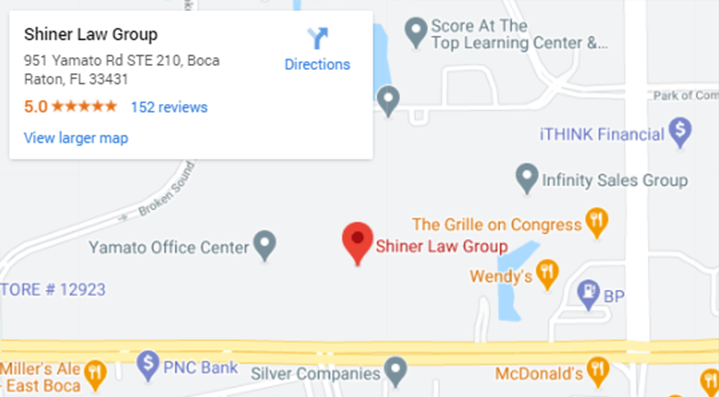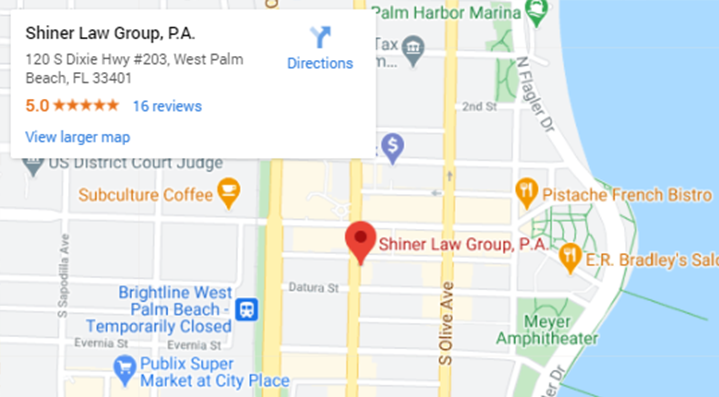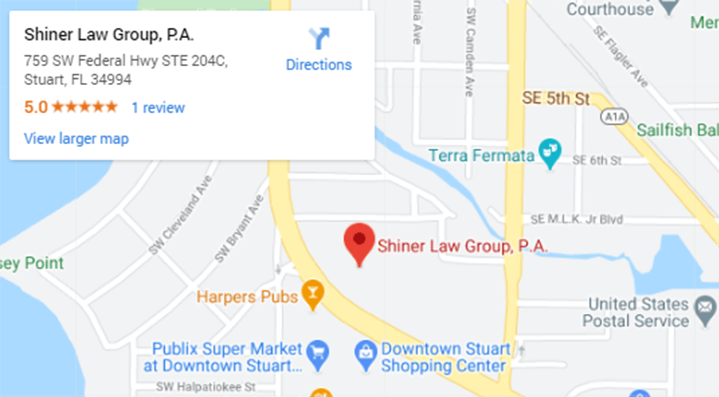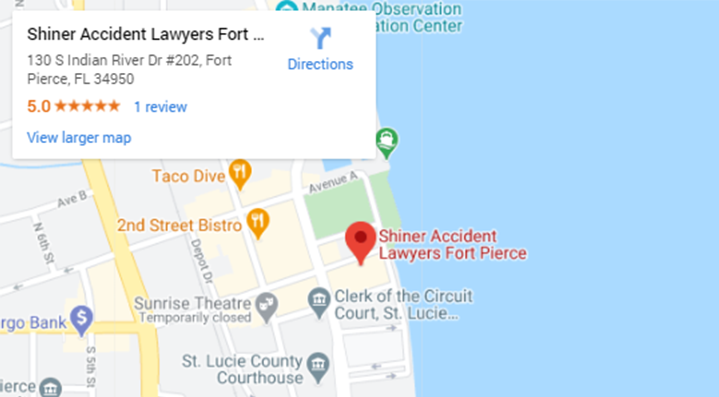Have you been deprived by Robinhood, do you believe you have a securities fraud case, then this is for you! Robinhood, which is notorious for halting trading and placing restrictions on GameStop (GME), AMC Entertainment Holdings, Inc. (AMC) and BlackBerry Ltd. (BB) but did you know that Robinhood is not the only trading firm to do so, others who also put restrictions on trading include Webull Financial LLC, E*Trade Financial Corp. and Interactive Brokers Group Inc.
The trading public, the Hollywood superstars, and our politicians are up in arms about the actions taken by Robinhood, and they may be right. It is interesting to note that no one has mentioned the other firms and their clients. We wonder if those clients have rights too or is the public laser focused on Robinhood?
The attorneys at Shiner Law Group have examined the actions taken by Robinhood and other brokerage firms and discussed the appropriateness of these actions. Our thoughts and opinions are detailed below and herein. We examined the stated reasons, listed by some of the brokerage firms, as well as other reasons which may come up later once the dust has finally settled.

Security Halt & Restrictions
One of the most important reasons for the security halt and restrictions we were able to determine was that just as an individual stock trader trading in a margin account has capital calls from time to time, similarly, brokerage firms also have capital obligations.
When the net capital of a brokerage firm falls below a certain dollar figure, based on a complex calculation, the firm is required to raise capital, restrict certain transactions in order to prevent the firm from falling into a capital crunch, obtain loans, or get additional funding from its peers, aka fire sell.
In the GameStop situation, due to the excessive trading, the brokerage firms had market capitalization requirements to fulfill or they would be in violation of several security laws enacted in the aftermath of the 2008 financial crisis.
The Basics of Margins
Allow us to take a brief step back and explain the basics of margin before we get to far down in the weeds. Brokerage customers on margin have the ability to borrow from the brokerage firm two times the value of the cash they have deposited to use to purchase a particular security, with caveats of course. For example a customer can purchase $2000 worth of XYZ stock in cash or double that $4000 worth of XYZ stock on margin, however because the brokerage firm is lending this money out to the customer, the customer has certain obligations, one being to pay margin interest on the loan and another being that the customer has a “margin maintenance requirement”, which is a minimum amount of equity that the customer must maintain in each investment, typically 25%, so if the stock you purchased on margin falls below the typical 25% threshold, you will receive a “margin call” and must bring the equity value back up to the required maintenance amount.
When a client opens a brokerage account, part of that agreement with the brokerage firm, states the client is required to fulfill a margin call immediately and failure to do so the firm has the “right” to sell anything in your portfolio to bring your equity value back to its requirement levels, meaning if you fail to meet your “margin call” the firm has the right to go into your account and sell anything they want to get their money back.
Additionally, the firm has the right and the ability to raise the threshold from the typically stated 25% to whatever the brokerage firm deems is appropriate based on the firms’ risk factors, the securities risk factors, or also notably the firm’s capital computations to meet regulatory requirements.
Also, part of the agreement, the firm has the ability to halt or place restrictions on a client’s account or a specific security at any given time. Thus, due to the heavy volume trading or due to regulatory requirements, the brokerage firms have the right and the ability to protect itself by restricting trading, halting trading, placing certain restrictions on your account or on a particular security.
Small Retail Investor Restrictions
Circling back to the recent GameStop situation, our Firm examined if the actions which took place by the brokerage firms were appropriate and if there is a potential legal case, or several legal cases, against Robinhood and other firms. Based on certain security laws enacted to prevent the collapse of firms we believe these brokerage firms have a strong defense for halting and restricting certain securities, such as GameStop.
However, there are other details we need to examine because a suit may not just be based on the capital requirements alone, nor the restrictions and halting of a particular security, there could be additional factors which these firms could be held accountable.
For example, the attorneys at Shiner Law Group are interested in certain conflicts of interest these firms may have. We would like to learn why these firms apparently only halted trading or restricted trading for the small retail investors, allowing larger firms to continue trading in these securities. While we at this time do not have detailed knowledge we have heard the rumors and read several reports that this is the case, if that is so, the firms may be liable for their failure of not treating its customers equitable and thus putting their smaller clients at greater risk, this is a clear cut case of the conflict of interest these firms may have had with others.
We have examined the many ways some of these firms may earn revenue. One such was is by routing their order or trades to larger brokerage firms, market makers or other investment firms who compensate the brokerage firm for its order flow. Thus, the more trades (buys and sells) the firm produces the more they receive on the backend. So, the excessive trading on securities such as GameStop would be a boon for these brokerage firms.
Conflict of Interests
Conflict of interest questions remain and must be investigated. Questions such as the following: Did these brokerage firms allow their institutional investors the ability to trade these securities? Why did they not restrict and halt trading for them as well? Did these firms have undisclosed business relationships with them? Were these firms invested, as stakeholders/shareholders of the firm? Were these firms or others offered more leeway or greater opportunities over the “ordinary” customers.
If any of these questions proves to be the case, customers disenfranchised by these restrictions and trading halts would have a strong case against these brokerage firms.
Finally, we believe that in some cases these firms had an obligation to halt or restrict certain trading to better protect their clients. These firms have a supervisory duty to know their customers and if they see suspicious trading, potential fraud, or suspected market manipulation these firms have an obligation to protect the best interests of their customer.
If they had known about these activities, suspected or should have known they could be held liable if they continued to allow trading in these stocks. As an example, if there was suspicion that there was fraud and they allowed a client to buy XYZ at a $100 and the news came out or the regulatory authorities stopped trading and the stock is not worthless the client has effectively lost $100, an argument could be made that the firm had an obligation to not affect the original trade since they had notice of potential suspicious activity, yet they allowed it, for whatever reason, it could be due to political backlash, it could be due to media attention or even worse reckless behavior because they were receiving money from the order flow and the more order they received the more money they got back.
Either way we do believe that there may be potential claims involved in the recent trading action against the brokerage firms, the clearing firms or others involved in the trading, including but not limited to those who may have helped manipulate the securities being traded such as on message boards or the actual people behind the screen names “pumping” these securities up.
We encourage you to reach out to our firm if you believe you may have been a victim of securities fraud or lost funds, money, or securities. In addition, the statements contained herein and made are our opinions only, and every case or situation is different which is why we encourage you to immediately contact a lawyer should you believe you may have a case. We can be reached at 561-777-7700.
Robinhood Part 2
With great fanfare users of the popular message board reddit helped propel GameStop, a little-known stock to great heights, going from $18.84 on December 31, 2020 to $347.51 on January 27, 2021 and finally under $45 towards the end of February. How did this happen and what are the regulators, especially the Securities and Exchange Commission (“SEC”) doing about this volatility?
We asked a group of investors if they had any concern about this movement. An investor with over 30 years of experience said the market manipulation via the online message boards reminded him of the “pump and dump” schemes of the late 80s. An investor with over 20 plus years of experience stated that she had confidence the SEC would be able to figure out what really happened and who is really at fault, she stated the SEC has been behind the “8 ball” on every major market scheme for as long as she could remember, she citied the Auction Rate failures as a prime example.
What we do know from published news reports and interviews with reddit users is that these users saw a potential “play” to “squeeze” certain major hedge fund companies that had shorted GameStop and make some money, a few had a feeling the market would eventually move their way, some had hope and a few had only a prayer. However, their constant push to inform their readers that there was a “play to be made” helped move the markets in ways few have seen. The market value of a relatively unknown security, that a few researchers believed would be the next blockbusters, shot through the roof, partly because of the reddit users and the message boards they utilize to communicate but also through social media sites such as Facebook and media news outlets looking for a story.
With the stock price of GameStop (GME) shooting through the roof, large investors who had shorted the stock (or bet against the stock moving higher) were left holding the bag and forced to go in to cover their short bets, boosting the stock price even further. With the hedge funds on the run, seeking additional capital to survive and cover their losing positions, other smaller investors jumped into the game, before you knew it this was a story of a life time, it was covered by every major news site all across the US.
Then the inevitable occurred, the brokerage firms also received calls, not from the big banks or their investors, but from their clearing firms demanding that their capital reserves be boosted. These brokerage firms started to scramble too. To stay alive and eliminate the risk, the brokerage firms were forced to reach out to their investors to get additional funding and to restrict certain securities from trading in the hopes that they too would survive. Without the capital reserves required to maintain an on-going concern, well they may not be so ongoing much longer.
This created another story, all unto itself, the belief that these brokerage firms were in the bag to their large investors, namely the hedge funds and trading firms that invested in them or used their trading activity to make money. With the brokerage firms on the ropes, with their clearing firms breathing down their necks, investor groups questioning the rational to put additional funds into the business, regulators scratching their heads trying to understand what was going on and their clients fuming at the perception of looking out for the big guy rather than the little guy, things started to turn quickly. Congress members started to demand answer, the media smelling a Pulitzer and their clients demanding accountability, these brokerage firms had a PR nightmare on their hands.
Soon they reversed course on the trading halts, they loosened up their trading restrictions, and now we, the public, are left putting the pieces back together to figure out what went wrong and who is at fault.
Luckily you have the experienced lawyers and professionals at the Shiner Law Group, P.A. in your corner. Our experienced professionals are here to help you sort through these legal issues and help you recover your financial losses. Have you or a loved one been harmed due to this recent market volatility? Did you buy securities using the Robinhood platform and were unable to liquidate? Are you looking for answers regarding other financial losses because of poor or inappropriate financial advice? If so, then call us, the Shiner Law Group at 561-777-7700 to speak to one of our experienced litigation attorneys today to find out how we can help you navigate the legal obstacles to recover your money.









